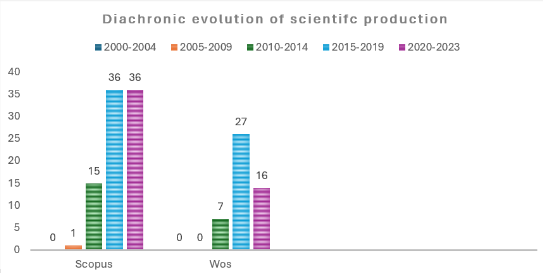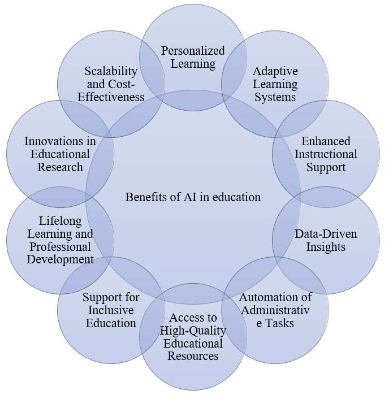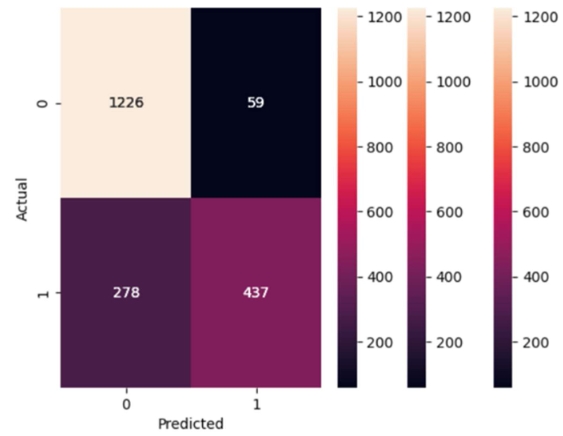




 Open Access
Open Access
Article
Article ID: 395
by Sayyed Rashid Ali Shah, Hamid Ali Khan Eusafzai
Forum for Education Studies, Vol.2, No.1, 2024;
This exploratory study delves into the concept of teacher leadership within the Teaching of English to Speakers of Other Languages (TESOL) context in Qatar. It investigates the strategies employed by TESOL professionals to enhance their leadership practices and identifies factors influencing the realization of teacher leadership in this particular setting. Utilizing an interpretive approach, the study employs semi-structured interviews to collect qualitative data from TESOL professionals serving as teacher leaders in five different universities in Qatar. The findings reveal several strategies employed by teacher leaders to enhance their practices, including collaborative team efforts, maintenance of reflective diaries, participation in international conferences, attendance at professional development courses, and volunteering as editors and reviewers. These strategies support teacher leaders in their roles, facilitating on-the-job learning and keeping them abreast of new developments in English Language Teaching (ELT). The study also uncovers various factors that negatively impact teacher leaders’ practices. These include a lack of professional autonomy, the absence of teachers’ voices in the decision-making process, increased workload and accountability, and a lack of trust and support. Inadequate professional development opportunities and lower levels of intrinsic motivation hinder teacher leaders from developing leadership skills, acquiring knowledge, and shaping a strong leadership identity.
 Open Access
Open Access
Article
Article ID: 241
by Cheska C. Jalos, Reina Chiara G. Magcamit, Nhobelyne Joy M. Sibulan, Jayson M. Fajilan, Ariane Grace C. Tumaca, Gemcer D. Selda
Forum for Education Studies, Vol.2, No.1, 2024;
This work sought the profile and extent of problems Bachelor of Elementary Education (BEEd) students encountered in distance learning as the basis for a proposed action plan. This study made use of descriptive-correlational research methods. Respondents were the Bachelor of Elementary Education (BEEd) students at Mindoro State University, Bongabong Campus (MBC). The study used a researcher-made instrument. Results showed that most BEEd students enrolled at MBC are 21 years old, female, in a state of lower income, single, and in their 4th year. BEEd students foster problems in distance learning concerning geographical location, internet connection, time management, and study habits. There is a significant correlation between demographic characteristics and issues faced, particularly regarding civil status and geographic location. These characteristics include adaptability, distractions, computer problems, and a lack of motivation and support. Socioeconomic status is only significantly related to internet connection, as not all students can participate in distance learning due to financial constraints.
 Open Access
Open Access
Article
Article ID: 380
by Nishat Nazmin Akter
Forum for Education Studies, Vol.2, No.1, 2024;
The development of information and communication technologies, the availability of information online, and the wide spread of the internet have changed the trends of library services. On the other hand, the user’s attitudes towards the library change. The users want digitalized resources and online services. To serve information seekers, there is no other way than digital reference service. Digital Reference Service is the only way to give the right information to the right users at the right time. Digital Reference Service provides a user assistant when they want while sitting at home. University libraries are an important part and parcel of higher education, and the users of these libraries, such as students, faculty members, and researchers always involved in education. They will need any type of information or document at any time. To fulfill their requirement and to achieve their satisfaction, there is no alternative to Digital Reference Service (DRS). From this study, it is found that the mentality of library professionals has changed. They try hard to make the library digital and provide internet-based services. Public university libraries offer a large number of databases to meet the needs of users. Besides these, the university libraries offer online services like Current Awareness Service (CAS), Selective Dissemination of Information (SDI), institutional repositories, and so on. They faced some problems with providing DRS. This study provides some recommendations that will help them to run digital reference services smoothly.
 Open Access
Open Access
Article
Article ID: 511
by Dozie John Okongwu, Unekwu Joshua Ogu
Forum for Education Studies, Vol.2, No.1, 2024;
The study investigated chemistry teachers’ utilization of three different constructivist-based teaching strategies in senior secondary schools in the Dekina local government area of Kogi state. The study adopted a descriptive survey research design. Three research questions and two hypotheses guided the study. The population of the study comprised 33 chemistry teachers in all the public secondary schools in the Dekina local government area. Purposive sampling was used for the study. The instrument for data collection was an observational rating scale on chemistry teachers’ utilization of constructivist-based teaching strategies developed by the researcher. The reliability of the instrument was obtained. A Cronbach alpha reliability estimate was used to determine the internal consistency of the instrument, which gave a reliability index of 0.71. Kendell’s coefficient of concordance was used to determine the inter-raters’ reliability, which was obtained as 0.75. Data collected were analyzed using mean and standard deviation to answer the research questions, while the z-test was used in testing the hypothesis formulated at the 0.05 level of significance. The findings of the study revealed the following: it was revealed that chemistry teachers’ qualifications and experience influence the utilization of constructivist-based teaching strategies. Based on the findings and conclusions, it was recommended, among others, that the government and Ministry of Education should employ qualified and experienced teachers to handle chemistry courses in senior secondary schools.
 Open Access
Open Access
Article
Article ID: 531
by Erica M. Guerrra, Gemcer D. Selda, Gemma G. Crisostomo, Lin T. Sumudyo, Nicole M. Buensalida, Renalyn B. Galicia
Forum for Education Studies, Vol.2, No.1, 2024;
This study sought to determine the behavioral aspects during the pandemic and the academic performance of Grade VI pupils at Bulalacao Central School as the basis for proposing an intervention program. This study made use of descriptive-correlation methods of research. Randomly selected respondents were from three (3) sections. The study used a validated researcher-made instrument that had reliability testing. Results revealed many behavioral aspects during the pandemic across indicators (mental aspects—2.81; emotional aspects—2.87; social aspects—2.99; and physical aspects—2.94). Pupils are on a satisfactory level of academic performance during the first and second quarters. Moreover, a significant relationship existed between the variables. With these, pupils had a great extent of behavioral aspects during the pandemic and had a satisfactory performance during the first and second quarters; the extent of their behavioral aspects during the pandemic affects the level of their academic performance; and the implementation of the psychosocial program was needed to boost their mental aspects as pupils.
 Open Access
Open Access
Article
Article ID: 537
by Sayyed Rashid Ali Shah, Hamid Ali Khan Eusafzai
Forum for Education Studies, Vol.2, No.1, 2024;
Employing an interpretive lens and utilizing a case study methodology, this research investigated insights from a purposively selected cohort of 12 English as a Foreign Language (EFL) teacher leaders on the significance of reflective practice in their professional growth within an EFL environment. Through a qualitative approach, data was collected via semi-structured interviews and an open-ended questionnaire. The findings reveal the multifaceted operational and instructional leadership roles undertaken by EFL teacher leaders within the hierarchical structures of the English Language Institute (ELI). These leaders demonstrate a commitment to reflective practices and proactive learning, utilizing collegiality and collaborative reflection to enhance their leadership skills and navigate contextual challenges at the ELI. In the landscape of higher education, EFL teacher leadership emerges from intrinsic motivation to learn and adapt to context-specific roles. This entails reflecting on diverse experiences and applying accumulated knowledge to enhance practical leadership competencies.
 Open Access
Open Access
Review
Article ID: 378
by Razan Mhanna, Hiba Abdo, Diana Ghanem, Mouna Chehabeddine, Georges Hatem
Forum for Education Studies, Vol.2, No.1, 2024;
Neuro-Linguistic Programming (NLP) intricately examines the visual, auditory, and kinesthetic representation systems, traversing the transformative trajectory from superficial to profound linguistic structures. This comprehensive paradigm elucidates the sophisticated cognitive processes through which the brain interprets events, molding emotions and behaviors through filters such as values, beliefs, memories, decisions, and meta-programs. As a potent catalyst for excellence and success, NLP empowers individuals and organizations to realize their aspirational objectives, nurturing flexibility, creativity, and autonomous behaviors. In educational contexts, practitioners adeptly employ NLP techniques to navigate conflicts, enhance leadership acumen, and inspire personnel toward organizational goals. NLP assumes a crucial role as a foundational element for ongoing learning, development, and the cultivation of dynamic capabilities within professional environments. Its applications extend beyond conventional business domains, seamlessly integrating with behavior modification models employed in psychotherapeutic settings. In the realm of child psychiatry, NLP addresses neurodevelopmental disorders, such as oppositional defiant disorder, with the potential to mitigate triggers in educational milieus. The Behavior Modification Model, anchored in the ABC (antecedents, behavior, and consequences) framework, meticulously shapes behaviors through positive and negative reinforcement and punishment. NLP is a versatile professional instrument applicable across personal development, therapeutic interventions, and diverse organizational landscapes. It is pivotal in elevating communication effectiveness, facilitating conflict resolution, and propelling individual and collective success to new heights. Applying NLP in schools proves invaluable by elevating teaching methodologies, cultivating effective communication, and nurturing essential skills for conflict resolution and leadership. Integrating NLP in educational settings can offer a holistic approach to learning, providing support for educators and students alike in navigating intricate situations and fostering an environment of continuous improvement. Implementing NLP should be approached with a balanced understanding of both its potential benefits and the need for empirical validation and ethical considerations.